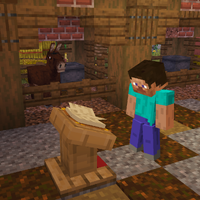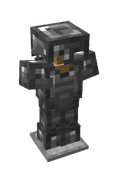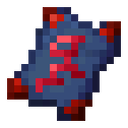Alathra:Essentials of Alathra

The world of Alathra contains additional features that regular players might be unaccustomed to. This article serves as a summary to some of the more important changes you'd need to know about to get you started on your way. Further links are provided to more in-depth guides on each topic.
Click here to go directly to a list of guides.
Important for beginners
In addition to the large amounts of content Alathra adds to base-game Minecraft, some big changes have been made to divert from the standard end-game scene achieved in many geopolitical servers.
These changes include:
- No Mending
- It undermines resource-based economies by removing the need for crafting and engraving materials. Players with Mending gear are less likely to trade or collaborate, as they no longer require replacement tools or repairs.
- It eliminates the need for a player to interact with a large part of gameplay. Crafting armor, weapons and tools is part of the natural progression that a server with a medieval theme would want to uphold.
- It enables groups to wage war with noticeably lower costs to equipment. Newcomers are inherently disadvantaged without Mending, as the progression curve gets steepened. Everyone becomes incentivized to get Mending, creating a meta that further worsens the previously mentioned issues.
- No elytra
- No villager trading
- No naturally generated netherite
Gameplay

Copper & Steel Age
On Alathra, ore distribution values are lowered for iron and diamond ores, thus making them more rare overall. To smoothen the larger gap between tier progressions, copper has been given armor and tool variants for early game use. Steel is meant to bridge the gap between iron and diamond tiers. Copper tools are equal to stone tools in softness, but have increased stats overall.
Steelmaking is a slightly more complicated process than regular ore smelting. Steel doesn't have a naturally occurring ore equivalent — instead, steel is crafted from iron using coal. Steel tools are equal to iron tools in softness and similar to copper, have increased stats overall. Steel is also required to craft any and all firearms.
Runes

Alathran Runes entail a complete replacement of the vanilla enchanting system, rehauling a major part of late game setup. Runes are physical items with variable amounts of effect, depending on how reactive a rune is. They can be both applied and removed from any equipment that contains rune slots.
Runes are categorized by their color type and their reactivity. Color type relates to a rune's generic utility, therefore determining which kinds of items it can be engraved to.
![]() Red-type runes enhance offensive attributes and are engraved on weapons.
Red-type runes enhance offensive attributes and are engraved on weapons.
![]() Green-type runes augment efficiency and utility of various tools.
Green-type runes augment efficiency and utility of various tools.
![]() Blue-type runes enhance defensive attributes and are engraved on armor.
Blue-type runes enhance defensive attributes and are engraved on armor.
![]() Yellow-type runes hold miscellaneous enhancements and can be engraved on a wide variety of items.
Yellow-type runes hold miscellaneous enhancements and can be engraved on a wide variety of items.
Runes grow in reactivity in the following order: Dormant > Forged > Resonant > Transcendent. Increasing a rune's reactivity is referred to as enrichment. All runes need to be enriched to some degree to carry enhancements — shattered runes carry no effects.
Stewards
Stewards are NPCs that act as intermediaries between a player and the administration of their town. They are required for creating a town, expanding its claims and managing transportation hubs.
Expanded weapons
Regional resources
Alathra contains special, region-dependent resources that are used to purchase unique items from the Regionals Exchange Hall. There are six unique regionals, which are obtained as a loot drop from defeating a mini-boss spawned in a specific region:
- Ironwood
- Gemcorn
- Alexandrite
- Seaglasses
- Rainbow Eucalyptus
- Amber